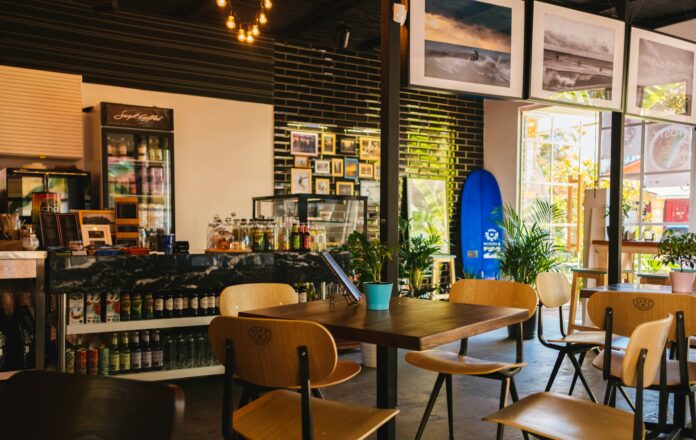Restaurant and Cafe spending drives Saudi Arabia’s economic surge as POS transactions reach new heights, fueled by digital payments and tourism growth
Saudi Arabia’s economy saw a significant boost in August 2024, with point-of-sale (POS) spending reaching an impressive SR58.51 billion ($15.6 billion). This marked a 9.67 per cent rise compared to the same month last year, reflecting the Kingdom’s ongoing economic transformation and the burgeoning hospitality sector. A large portion of the surge was driven by a 4.72 per cent increase in sales at restaurants and cafes, underscoring the growing appetite for dining experiences and the increasing role of hospitality in the nation’s evolving economy.
The hospitality sector, comprising restaurants, cafes, and beverage outlets, accounted for SR16.55 billion of the total POS spending, making it a standout contributor. This rise coincided with Saudi Arabia’s broader push to diversify its economy away from oil dependency, and the flourishing tourism sector has further fuelled consumer demand for dining and leisure experiences. As the Kingdom hosts more international events and attracts tourists, the hospitality industry has become a linchpin in the country’s economic strategy.
Beyond the hospitality surge, several other sectors saw notable increases in spending. Clothing and footwear, long considered vital retail categories, contributed SR3.63 billion, accounting for 6.2 per cent of overall POS transactions. Health and transportation followed closely, each recording SR3.38 billion, or roughly 6 per cent of the total. These figures highlight a broad-based recovery in consumer spending across various categories, signalling increasing consumer confidence in the Kingdom’s economic outlook.
Embed from Getty ImagesJewellery sales experienced the strongest growth, rising by a staggering 15 per cent to reach SR982.15 million. Although jewellery made up a relatively small percentage of the overall POS spending, the sharp increase points to rising consumer demand for luxury goods. Telecommunications, while a modest contributor at SR493.5 million, also saw a 14 per cent uptick. These trends suggest that even sectors not traditionally associated with high-volume POS transactions are benefiting from Saudi Arabia’s growing embrace of digital payments and cashless transactions.
Driving this upward trend is the Saudi government’s continued focus on digitalisation and innovation. With consumers increasingly gravitating towards cashless transactions, businesses are swiftly adapting by adopting advanced POS systems to streamline their operations and provide a smoother customer experience. The trend aligns with the Kingdom’s Vision 2030, which aims to foster a modern, technology-driven economy. The rise of digital payment options has been particularly notable among Saudi Arabia’s younger, tech-savvy demographic, who are accustomed to seamless, quick transactions at cafes, restaurants, and other retail outlets.
As part of this digital revolution, TRAY, a leader in cloud-native POS systems, has expanded its partnership with Alraedah Finance, a prominent provider of financial and digital solutions. The partnership is poised to improve POS technology across the Kingdom, offering small and medium-sized enterprises (SMEs) and larger companies advanced systems that optimise inventory management and leverage data analytics. The collaboration, initiated in 2023, has already had a profound impact on business operations in Saudi Arabia, particularly in the hospitality industry. This partnership exemplifies the type of private-sector collaboration that is fuelling Saudi Arabia’s digital transformation.
Alraedah’s investment in TRAY will not only boost the development of the company’s POS technology but will also expand its service offerings, including POS financing, to support SMEs. This is crucial, given that SMEs are often regarded as the backbone of Saudi Arabia’s economy, particularly as the nation seeks to diversify away from oil. By providing these enterprises with cutting-edge tools, Saudi Arabia is positioning its business ecosystem to be more resilient, agile, and ready to meet the demands of a modern, competitive marketplace.
The rise in POS spending, particularly in the hospitality sector, also reflects broader societal changes. The country’s ongoing efforts to attract international visitors through tourism initiatives have started to bear fruit. From hosting major global events to opening up cultural and recreational spaces, Saudi Arabia is steadily becoming a destination for international tourists and business travellers alike. These efforts not only generate revenue but also enrich the cultural landscape, creating a ripple effect across various sectors, including hospitality, retail, and entertainment.
However, this growth does not come without challenges. Infrastructure, particularly in greenfield housing developments, will need to keep pace with this burgeoning demand. Investments in water, power, and transportation are critical to ensuring that the country’s economic ambitions are sustainable in the long term. Additionally, while the focus on digital payment systems is largely positive, there are still challenges around ensuring these technologies are accessible to all citizens, particularly in rural areas where technological infrastructure may lag behind.
In conclusion, Saudi Arabia’s record POS spending in August, particularly driven by restaurants and cafes, is a testament to the country’s evolving economy. With continued investments in digital technology, infrastructure, and tourism, the Kingdom is well on its way to meeting its Vision 2030 goals. As businesses continue to adapt to the digital era, and as consumer spending trends evolve, Saudi Arabia is poised to remain a leader in the MENA region’s economic transformation.
